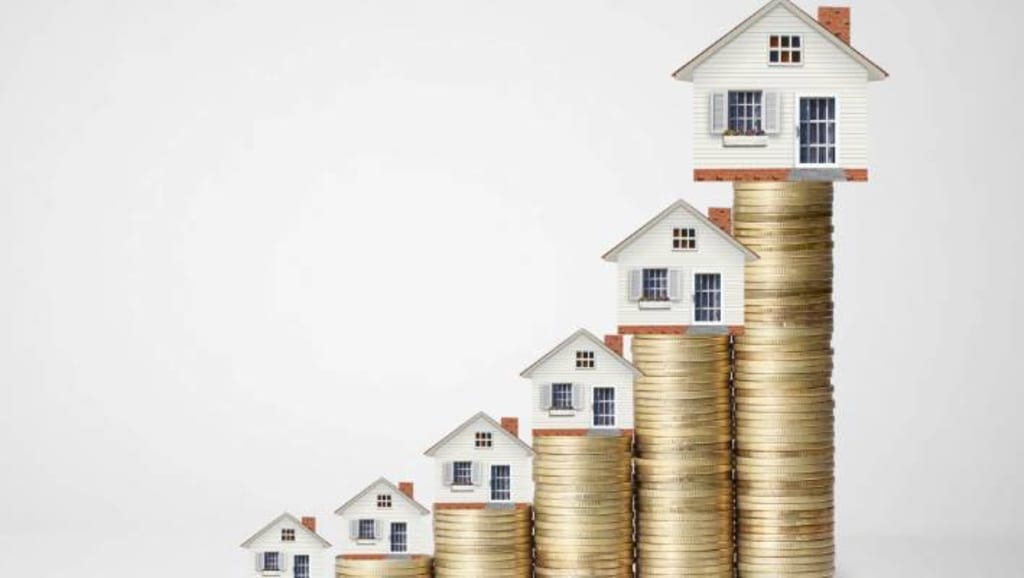Inflation and House Prices
Here's How Your House Price Can Reflect National Inflation

As I was reviewing the morning's economic news, I saw that the rate of sales of previously occupied residences had climbed from the previous month. The USD would strengthen if the figure came in higher than predicted and weaken if it came in lower.
In my opinion, this information provides a useful snapshot of the situation of the American economy and the housing market. CoreLogic reports that between November 2017 and November 2018, home prices throughout the country rose by 8.6 percent. As compared to September, when the annual growth rate was 11.4%, October's rate was 10.1%. This probably means that the rate is going down. The consumer price index decline for December 2022 was smaller than first estimated, according to statistics provided by the U.S. Bureau of Labor Statistics on January 12. No different from the rise witnessed in November. The annual inflation rate was 7.1% from November 2021 to November 2022, and 6.5% from December 2021 to December 2022. Consumers should breathe a sigh of relief since inflation, although still high at 6.5%, is trending downward. By the end of 2022, six straight months of declining inflation will have been recorded in the U.S. market.
Economists have reached the inarguable conclusion that house prices and inflation move in tandem over time. Inflation tends to drive up the cost of scarce products, not just in the real estate market. Housing is a major contributor to supply in every economy.
I read that in a book, but I can't remember which one. He gave an illustration of the connection between national house prices and economic growth. He said to picture a country where each house was duplicated five times and the currency was just $10. Without any other factors, the price of a house would be $2. After that, we'll pretend the government decides to print some more money, bringing the grand total of legal tender to $20. Then, we'd make a house $4. These numbers led him to the conclusion that monetary growth is the primary factor in rising inflation and property values. However, if supply doesn't grow to meet growing demand, house prices will climb.
In reality, there is a far wider range of influences on home values. As a result, the link is less strong. Rising interest rates are a major factor in the escalation of housing costs. The demand for homes may increase if mortgage rates are lowered, making homeownership more affordable. Because of the high demand and little supply of land, inflation is most pronounced in the nation's largest cities.
Inevitably, increasing home prices will have an effect on people's net worth and the capacity of communities to keep their costs down. Thus, they are a major factor in overall cost increases. The Consumer Price Index (CPI) is a metric used by economists and policymakers to keep tabs on the overall cost of living. It is not meant to calculate the value of a family's stocks and bonds. One such indicator is the Consumer Price Index (CPI), which measures the average price fluctuations of a large variety of goods and services often bought by consumers. There's the cost of lodging and the value of your own or rented property. In the CPI, housing expenses account for about a third of the total, and for 40% of the "core" CPI (which eliminates the more volatile food and energy components). As a result, in principle, even small changes in housing prices may have a big impact on overall inflation.
When it comes to family-owned and occupied housing, however, this goal becomes more difficult to achieve because home prices consider both the asset value of a house and the value it provides as a "service" to the family.
Doug Duncan, senior vice president and chief economist at Fannie Mae, said, "The HPSI went up a little bit in December as consumers showed more hope that mortgage rates and home prices might go down over the next year."
About the Creator
Dr. Sulaiman Algharbi
Retired after more than 28 years of experience with the Saudi Aramco Company. Has a Ph.D. degree in business administration. Book author. Articles writer. Owner of ten patents.
Instagram: https://www.instagram.com/sulaiman.algharbi/






Comments
There are no comments for this story
Be the first to respond and start the conversation.